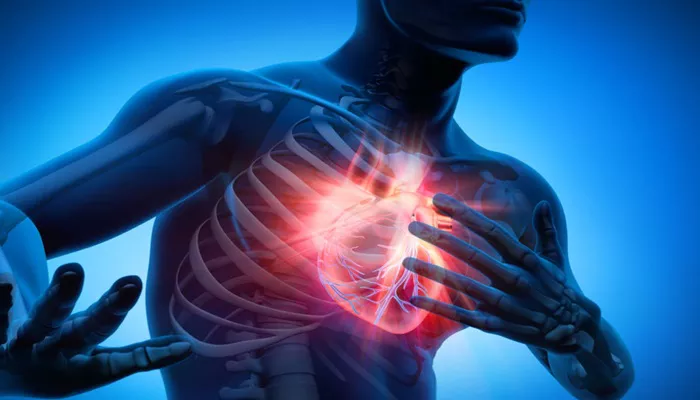Fatigue is a common symptom in individuals with coronary heart disease (CHD), impacting their quality of life and daily functioning. Understanding the underlying causes of this fatigue can help in better management and treatment. This article explores the six best reasons for fatigue during coronary heart disease.
The 6 Best Reasons for Fatigue During Coronary Heart Disease
1. Reduced Oxygen Supply to the Heart
One of the primary reasons for fatigue in individuals with coronary heart disease is the reduced supply of oxygen to the heart muscle. Coronary heart disease is characterized by the narrowing or blockage of the coronary arteries, which impairs blood flow. This condition, known as ischemia, leads to an inadequate supply of oxygen to the heart. When the heart muscle does not receive sufficient oxygen, it cannot function effectively, resulting in fatigue.
The heart’s inability to pump blood efficiently affects the entire body, as organs and tissues receive less oxygen and nutrients. This systemic effect manifests as persistent tiredness, even with minimal physical exertion. Patients may experience this fatigue as an overwhelming sense of weariness that does not improve with rest.
2. Heart Failure
Heart failure is a common complication of coronary heart disease and a significant contributor to fatigue. In heart failure, the heart’s pumping ability is compromised, leading to an insufficient supply of blood to meet the body’s needs. This condition can be classified as systolic or diastolic heart failure, depending on whether the heart’s ability to contract or relax is impaired.
In systolic heart failure, the heart’s reduced contractility results in inadequate blood flow, while in diastolic heart failure, the heart’s stiffness prevents it from filling properly. Both types lead to a decrease in cardiac output, causing fatigue.
Patients with heart failure often experience additional symptoms such as shortness of breath, swelling in the legs, and difficulty sleeping, which further exacerbate their fatigue.
see also: 7 Risk Factors for Coronary Artery Disease
3. Medications
Medications prescribed to manage coronary heart disease can also contribute to fatigue. Beta-blockers, commonly used to reduce the heart’s workload and control blood pressure, can cause side effects such as tiredness and lethargy. These drugs slow the heart rate and reduce the force of contractions, leading to a decrease in overall energy levels.
Other medications, such as ACE inhibitors, diuretics, and calcium channel blockers, may also contribute to fatigue.
Diuretics, for example, help reduce fluid buildup in the body but can lead to dehydration and electrolyte imbalances, causing fatigue. Patients should communicate with their healthcare providers about any side effects they experience, as adjustments to medication regimens can help alleviate fatigue.
4. Inflammation and Immune Response
Chronic inflammation is a hallmark of coronary heart disease and plays a significant role in the development and progression of the condition. Inflammation occurs as the body’s immune response to injury or infection, but in the case of coronary heart disease, it can become chronic and contribute to the narrowing of arteries.
The inflammatory process releases cytokines and other inflammatory mediators that can lead to fatigue. These substances can affect the central nervous system, causing a feeling of tiredness and malaise. Additionally, inflammation can interfere with the body’s energy production processes, further contributing to fatigue. Managing inflammation through lifestyle changes and medications can help reduce fatigue in patients with coronary heart disease.
5. Psychological Factors
The psychological impact of living with coronary heart disease cannot be underestimated. Anxiety and depression are common among individuals with this condition and can significantly contribute to fatigue. The stress of managing a chronic illness, concerns about future health, and the limitations imposed by the disease can all lead to mental and emotional exhaustion.
Depression, in particular, is closely linked to fatigue. It can cause changes in sleep patterns, appetite, and energy levels, making individuals feel tired even after a full night’s sleep. Addressing psychological factors through counseling, support groups, and medication can improve overall well-being and reduce fatigue.
6. Lifestyle Factors
Lifestyle factors, including physical activity levels, diet, and sleep quality, play a crucial role in fatigue among individuals with coronary heart disease. Physical inactivity can lead to deconditioning, where muscles lose strength and endurance, making everyday activities more tiring. Conversely, excessive physical activity without adequate rest can also cause fatigue.
Dietary habits, such as consuming a high-sugar or high-fat diet, can lead to fluctuations in blood sugar levels and energy crashes, contributing to fatigue. Poor sleep quality, common in individuals with coronary heart disease, can resul from factors such as sleep apnea, discomfort, or medication side effects. Ensuring a balanced diet, regular but moderate physical activity, and good sleep hygiene can help manage fatigue.
Conclusion
Fatigue is a multifaceted symptom in individuals with coronary heart disease, influenced by physiological, psychological, and lifestyle factors. Understanding the underlying causes of fatigue can help in developing effective management strategies. By addressing issues such as reduced oxygen supply, heart failure, medication side effects, inflammation, psychological stress, and lifestyle factors, patients can improve their energy levels and overall quality of life.

